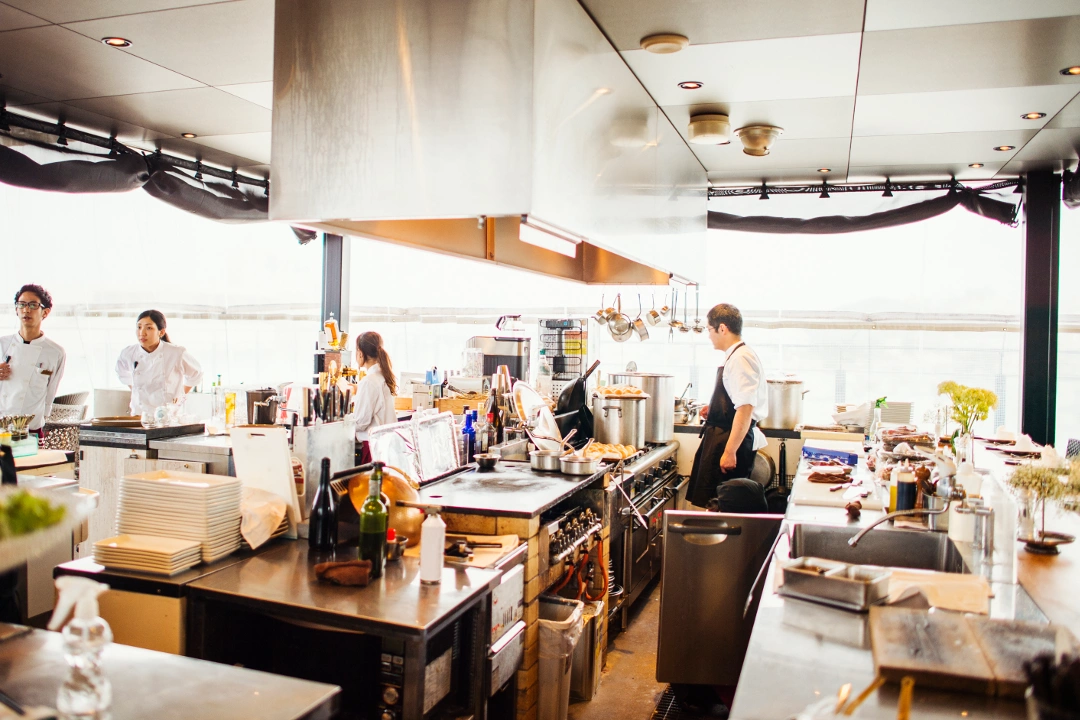
Si vous exploitez un restaurant ou une autre entreprise de services alimentaires au Canada, le fait de vous conformer au code fédéral sur la vente au détail d'aliments et les services alimentaires (FRFSC) peut vous aider à...
You’ve found a location, planned the menus, sourced your supplies, and picked the perfect name but there’s still a lot of regulatory hurdles to overcome before you can open your dream restaurant.
Starting a food service business involves a lot of paperwork. Permits, licenses, training - there are dozens of boxes to tick before you can open your doors to paying customers. At a minimum, restaurants need a business license, a health permit, and (if they intend to serve alcohol) a liquor license.
Every province is different however, so operators need to get familiar with the regulations in their area and contact their local municipalities. They should also leave plenty of time for the permit process as getting the necessary approvals can take months and long wait times could result in delayed opening.
Read our province-by-province guide to cut through the red tape and discover exactly what restaurant license or food permits you need to get your food business fully operational.
Food safety in Canada is governed by three tiers of regulations - federal, provincial and local. If you’re opening a restaurant, your first stop is your local public health authority as this agency is typically responsible for applying and enforcing local regulations, including city bylaws and/or municipal requirements.
Local authorities are responsible for issuing restaurant licenses and food service permits in their area, they also oversee inspections, penalties, and fines. These agencies also issue construction permits and oversee zoning bylaws for operators who are building or leasing new food service premises.
Alberta food service establishments must comply with the province’s main food safety regulation, Alberta Regulation 31/2006. This covers all aspects of food service, including the requirement to operate with a valid permit approved by a regional health authority.
It also lays out the basic building and operating requirements for commercial food establishments, as well as storage, pest control, sanitation procedures, the health and hygiene of food handlers, and the requirements for food safety training.
All restaurants and other food service businesses in Alberta must have at least one employee with food safety certification when six or more food handlers (including servers) are on premises. When there are five or fewer food handlers on premises, the certified food handler is permitted to be off-site.
Before they open, restaurants and other food establishments must get approval from Alberta Health Services (AHS) which provides a guide to help operators navigate the process.
Once building permits and structural plans are in place, the next step is to apply for a food handling permit. Applications must be submitted to your local Environmental Public Health office at least 14 days prior to the proposed opening date. A public health inspector will then carry out an on-site inspection to make sure that the premises are clean, all structural work is done, and all necessary equipment is in place.
If the inspection goes ahead without any issues, you’ll receive your food handling permit and be able to open.
British Columbia’s Food Safety Act is the main regulatory document governing food safety throughout the province.
The B.C government provides a checklist outlining the steps food service operators need to take before they open their business but specific permits are issued by local municipalities.
Operators will first need to check local zoning bylaws and draw up a business plan. They’ll need to get building permits and a business license from their local authority before proceeding to the next step - obtaining the relevant food safety permits.
All food service businesses in BC need a Health Operating Permit issued by the regional health authority. If you’re opening a restaurant in Vancouver, this falls under the remit of Vancouver Coastal Health (VCH).
To apply for a permit, operators have to submit a floor plan review, application form, certificate of incorporation, menu, food safety plan, and valid food handler certification. Once submitted, VCH will carry out an inspection of the premises before granting the permit.
Food establishments in Manitoba are governed by the Public Health Act. This requires operators to register their business and obtain a permit from a public health inspector before opening.
Food service businesses must complete and submit a food handling permit registration form, the restaurant menu, and a detailed floor plan to the public health inspector who will review the documents and carry out an on-site inspection.
If you’re opening a restaurant in Winnipeg, you’re subject to the City of Winnipeg’s Foodservice Establishment by-law which covers food handler certification, requirements for premises, and more. This enforces the provincial requirements.
In New Brunswick, licenses to operate food premises are issued by the regional directors of the Health Protection Branch. The form for this permit is available online. Operators can also pick up a hard copy at any Service New Brunswick branch.
Permit forms must be accompanied by a detailed floor plan, menus, dates and times of restaurant operation, a statement of experience and proof of food safety training, details of sanitation practices, and hygiene procedures. All documentation should be submitted to your nearest Health Protection office who will review the application and carry out an inspection before granting approval.
Fixed and mobile food premises in Newfoundland and Labrador need a Food Establishment License to operate. They must also provide a detailed floor plan, proof of food handler certification, and municipal approval.
Approval is granted only if the premises adhere to the province’s Food Premises Regulations which outlines the basic requirements for licenced food businesses to operate safely within the province.
This includes keeping food preparation and food storage areas separate from other areas, having washroom facilities, eliminating health hazards and pests, and ensuring at least one certified food handler is present on the food premises during each hour it is in operation
The Nova Scotia government recommends that food operators begin the permit process 3-6 months before they intend to open their business.
The first step is preparing a business plan and registering the business. Next, contact your local municipality to confirm the zoning requirements of your location and create a site plan.
Once these steps are complete, you can start preparing for permit applications. All businesses serving food need a Food Establishment Permit, involving a pre-opening inspection. They also need to provide proof of food handler training as the owner and at least one staff member must have a food handler certificate, according to provincial legislation.
Ontario’s Food Safety and Quality Act requires all food establishments in the province to have a license. Those licenses are issued by each municipality so anyone wanting to open a restaurant, catering business, food truck or other venue where food is prepared and served should contact their local health authority.
This authority will be responsible for issuing licenses, carrying out initial and ongoing inspections, and ensuring businesses continue to comply with food safety regulations.
If you’re opening a restaurant in Toronto, for example, you need to notify Toronto Public Health. Once they’ve been notified, a Toronto Public Health Officer will get in touch to discuss structural requirements and any building plans.
You’ll then be referred to DineSafe, Toronto Public Health’s food establishment inspection program. DineSafe inspectors will visit the premises to ensure they satisfy the Ontario Food Premises Regulation. They’ll also check for training - in Ontario, food service businesses must have at least one certified food handler on premises every hour of operation.
Once DineSafe is satisfied and the premises pass inspection, they can open for business. Inspections will then typically occur once a year, but may happen more regularly if a complaint is made or Toronto Public Health have concerns.
Food establishments in Prince Edward Island fall under the remit of Environmental Health, which is responsible for vetting premises before they can open.
But before contacting Environmental Health, operators should get in touch with their municipal authority to obtain the relevant approval for their building and location.
Once this is done, food businesses need to submit an application to Environmental Health at least two weeks before they intend to open. EH will then review the application and perform an inspection to ensure the business meets the food safety requirements laid out in the Public Health Act and the Food Premises Regulations.
All restaurants and food service businesses in Quebec are subject to its major food safety legislation, The Food Products Act.
The Act requires all food businesses to have a permit and business license to open, as well as
a valid food establishment manager training certificate, specifying the name of the certificate holder and the certificate number. The Act also states that the person responsible for the hygiene and safety of food products must also ensure that at least one employee holding valid food handler training certification or food establishment manager training certification must be on premises during all operating hours.
Before they can open, Quebec restaurants must have a Restaurant and Retail permit issued by the Ministry of Agriculture.
If you’re opening a restaurant in Saskatchewan, you’ll need to complete a New Premise Application form. This should be submitted to your local public health office along with floor plans and food premise information such as details of menus and equipment.
Food inspectors will also have to ensure you and your staff have the required food handler certifications as Saskatchewan’s food safety regulations require that all restaurants and food service establishments have at least one certified food handler on premises at all times.
Restaurant inspections are carried out by Public Health Inspectors before opening and at their discretion.
For more information on federal, provincial, and municipal food safety requirements, visit our guide to Canada’s regulations. And check out our training solutions for businesses to get your team the certificates they need to stay compliant.

Si vous exploitez un restaurant ou une autre entreprise de services alimentaires au Canada, le fait de vous conformer au code fédéral sur la vente au détail d'aliments et les services alimentaires (FRFSC) peut vous aider à...
